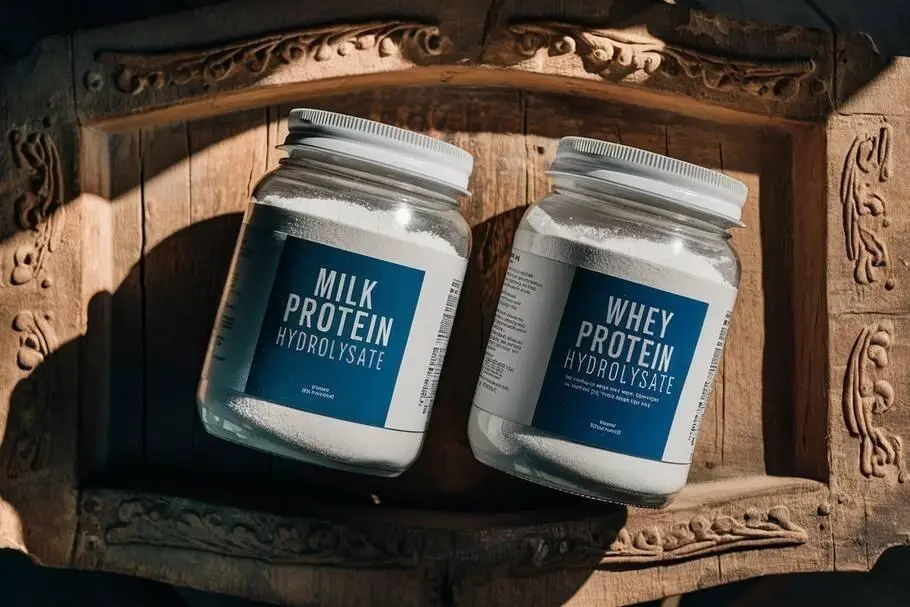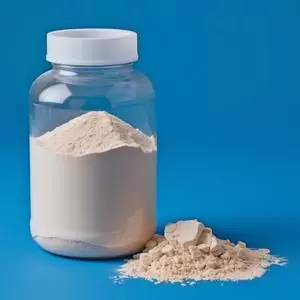
Milk and Whey Protein Hydrolysate: Benefits and Uses
MPH vs. WPH: Which Protein Hydrolysate is Right for You?
What is Milk Protein Hydrolysate (MPH)?
Milk Protein Hydrolysate (MPH) is a form of milk protein that has been partially broken down through enzymatic hydrolysis. This process involves the use of specific enzymes to cleave the peptide bonds in the protein chains, resulting in shorter peptides and amino acids. These smaller protein fragments are more easily absorbed and utilized by the body compared to intact proteins.
MPH retains the full spectrum of essential amino acids found in milk, making it a complete protein source. The hydrolysis process also reduces the allergenic potential of milk proteins. This makes MPH a suitable option for individuals with milk protein sensitivities. Due to its high digestibility and nutritional value, MPH is commonly used in specialized nutritional products, including infant formulas, medical nutrition, and sports supplements.
What is Whey Protein Hydrolysate (WPH)?
Whey Protein Hydrolysate (WPH) is a highly refined form of whey protein, derived from the liquid byproduct of cheese production. Like MPH, WPH undergoes enzymatic hydrolysis, breaking down the protein into smaller peptides. This hydrolysis enhances the protein’s bioavailability and speeds up its absorption in the body.
WPH is particularly rich in branched-chain amino acids (BCAAs), especially leucine, which plays a critical role in muscle protein synthesis. This makes WPH an ideal protein supplement for athletes and bodybuilders who seek rapid recovery and muscle growth. Additionally, the hydrolysis process reduces the lactose content in WPH, making it easier to digest for lactose-intolerant individuals.
Applications of Milk Protein Hydrolysate (MPH)
Milk Protein Hydrolysate has diverse applications in various nutritional and functional foods:
- Infant Nutrition. MPH is used in hypoallergenic infant formulas, catering to infants with cow’s milk protein allergies or intolerances. Its gentle composition supports healthy growth and development without triggering allergic reactions.
- Clinical Nutrition. In medical settings, MPH is included in enteral nutrition formulas for patients with compromised digestive systems. Its high digestibility and nutrient density make it an excellent protein source for patients recovering from surgery, illness, or malnutrition.
- Functional Foods. MPH is also used in functional foods, such as high-protein yogurts, shakes, and bars. These products are designed to offer enhanced nutritional benefits, including muscle recovery and immune support.
- Elderly Nutrition. For the elderly, MPH provides a high-quality protein source that is easy to digest, helping to maintain muscle mass and overall health.
Applications of Whey Protein Hydrolysate (WPH)
Whey Protein Hydrolysate is widely utilized in the following areas:
- Sports Nutrition. WPH is a staple in sports nutrition due to its rapid absorption and high BCAA content. It helps athletes recover faster post-exercise by promoting muscle repair and growth. Pre- and post-workout supplements often include WPH for these reasons.
- Medical Nutrition. In clinical settings, WPH is used for patients who need rapid protein intake, such as those with malabsorption issues or muscle wasting conditions. Its easy digestibility and quick absorption make it a suitable choice for medical nutrition therapy.
- Weight Management. WPH is included in meal replacement shakes and protein-enriched foods for weight management. Its satiating properties help reduce hunger and support muscle maintenance during weight loss.
- Functional Foods and Beverages. WPH is also used in a variety of functional foods and beverages, offering consumers a convenient way to increase their protein intake. Products like protein-enriched water, snacks, and meal bars often feature WPH for its nutritional benefits.
Whey Protein Hydrolysate vs. Milk Protein Hydrolysate
While both WPH and MPH are derived from milk proteins, they offer distinct nutritional profiles and benefits. The choice between them depends on specific dietary and health needs:
- Source and Composition. WPH is derived specifically from whey, a byproduct of cheese production, and is particularly rich in BCAAs. MPH, on the other hand, comes from whole milk and contains both casein and whey proteins, offering a more balanced amino acid profile.
- Absorption Rate. WPH is rapidly absorbed due to its smaller peptide size, making it ideal for situations requiring quick protein delivery, such as post-workout recovery. MPH, while also easy to digest, provides a more sustained release of amino acids.
- Lactose Content. WPH typically contains less lactose than MPH, making it a better option for those with lactose intolerance.
- Applications. WPH is highly favored in sports and clinical nutrition due to its quick absorption and high leucine content. MPH is more commonly used in hypoallergenic formulas and functional foods where a broader nutritional profile is beneficial.
- Allergenicity. Both WPH and MPH are hydrolyzed to reduce allergenic potential, but MPH is often preferred in hypoallergenic infant and medical formulas due to its comprehensive nutritional profile and reduced allergenic components.
Understanding the specific benefits and applications of WPH and MPH can help individuals choose the right protein supplement based on their nutritional goals and dietary restrictions.
Get a wholesale Whey protein supply price right now!
As a professional producer and supplier of Whey protein, Agrocomplex Sp. z o.o. has been selling Whey protein in Poland since 1992. Therefore, you can be sure that you are buying Whey protein from Agrocomplex. Please direct any questions and issues to the email address info@agrocomplex.com.pl, and we will respond within 1 business day.

FAQs: Milk and Whey Protein Hydrolysate: Benefits and Uses
- What is Milk Protein Hydrolysate (MPH)?Milk Protein Hydrolysate (MPH) is a form of milk protein that has been partially broken down through enzymatic hydrolysis. This process results in smaller peptides and amino acids, making it easier for the body to absorb and utilize.
- What is Whey Protein Hydrolysate (WPH)?Whey Protein Hydrolysate (WPH) is a highly refined form of whey protein that has also undergone enzymatic hydrolysis. This process enhances the protein's bioavailability and speeds up its absorption in the body.
- What are the main applications of Milk Protein Hydrolysate (MPH)?MPH is commonly used in infant nutrition (hypoallergenic formulas), clinical nutrition (enteral formulas), functional foods (high-protein products), and elderly nutrition.
- Where is Whey Protein Hydrolysate (WPH) widely used?WPH is widely utilized in sports nutrition (muscle recovery), medical nutrition (rapid protein intake), weight management (meal replacements), and functional foods and beverages (protein-enriched products).
- What is the key difference between MPH and WPH in terms of source and composition?WPH comes specifically from whey and is rich in BCAAs, while MPH comes from whole milk and contains casein and whey proteins, offering a more balanced amino acid profile.
- Which has a faster absorption rate, WPH or MPH?WPH is absorbed more rapidly due to its smaller peptide size, making it ideal for situations requiring quick protein delivery.
- Which is better for lactose-intolerant individuals, WPH or MPH?WPH typically contains less lactose than MPH, making it a better option for those with lactose intolerance.
- In which applications is WPH highly favored?WPH is highly favored in sports and clinical nutrition due to its quick absorption and high leucine content.
- Why is MPH often preferred in hypoallergenic formulas?MPH is often preferred in hypoallergenic infant and medical formulas due to its comprehensive nutritional profile and reduced allergenic components.
- What are the benefits of using hydrolyzed proteins?Hydrolyzed proteins like MPH and WPH are easier to digest and absorb, reduce allergenic potential, and provide a readily available source of amino acids for muscle repair and growth.
Our offer

